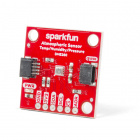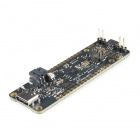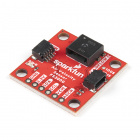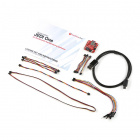SparkFun Qwiic Shield for Teensy Hookup Guide
Contributors:
 QCPete
QCPete
Resources and Going Further
That's a wrap! Your Qwiic Shield for Teensy/Teensy Extended is now ready to connect to any of a host of Qwiic devices SparkFun offers. For more information, take a look at the resources below.
Qwiic Shield for Teensy
Qwiic Shield for Teensy Extended
Even More Resources
If you are having trouble getting your Qwiic devices to connect using your newly assembled Qwiic Shield, you may want to take a look at these tutorials for help troubleshooting and reworking your shield.
Now that you have your Qwiic Shield ready to go, it's time to check out some Qwiic products. Below are a few to get started.
Before you go, here are some other tutorials using the Qwiic Connect System you may want to look through:
Qwiic Pro Kit Project Guide
The Qwiic Pro Kit was designed to allow users to get started with Arduino without the need for soldering or a breadboard. We've included three inputs (a joystick, accelerometer, and proximity sensor) and one display that can be daisy chained to the RedBoard Turbo (SAMD21) Development Board.
Basic Servo Control for Beginners
An introductory tutorial demonstrating several ways to use and interact with servo motors!
SparkFun Qwiic MicroPressure Hookup Guide
Get started using your Qwiic MicroPressure breakout board with this hookup guide.
Qwiic Dynamic NFC/RFID Tag Hookup Guide
Add a configurable NFC/RFID tag to your Qwiic ecosystem by following this guide.



